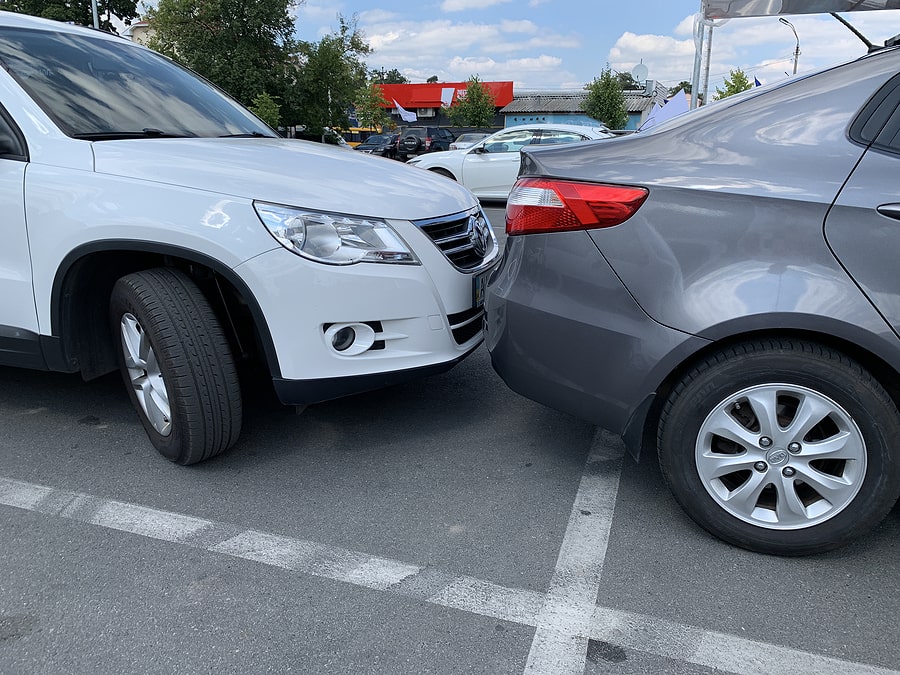Trucks play an important role in the everyday lives of Houstonians and the Houston economy. Drive anywhere in Houston, and you’re bound to encounter trucks of all shapes, sizes, and work purposes.
Trucks roll in and out of Port Houston, picking up and dropping off cargo containers containing a wealth of goods, materials, and petrochemical products. Tractor-trailers navigate Houston highways, including the I-610 Loop, I-45, and I-69, passing through on their way to points far-and-wide, or taking exits to deliver their payloads to area businesses. Smaller trucks weave their way through Houston neighborhoods like Sharpstown, Woodland Heights, and Pecan Park, bringing internet purchases to our doorsteps, picking up garbage, and filling the shelves at local retailers.
Unfortunately, our reliance on trucks for commerce and convenience comes with an inevitable cost: truck accidents. Every year, Houstonians suffer injuries and fatalities in crashes involving trucks large and small.
Still, that doesn’t mean we should just accept that cost as fixed-in-stone. We can do our best to limit the toll of Houston truck accidents by learning about what causes them, and staying aware of the features of Houston’s roads and driving culture that put us, our loved ones, our friends, and our neighbors at risk of getting hurt in a truck crash.
In this blog post, we’ll dissect the causes of Houston truck accidents in hopes of helping you understand why they happen and what we can do to limit their impact on our families and communities.
Houston Truck Accidents: What the Data Says
We can’t tackle a problem like truck accidents in Houston without first getting an idea of how bad it is. Thanks to the Texas Department of Transportation (TxDOT) annual crash reports and queries in TxDOT’s Crash Records Information System (CRIS) database, we can assess the challenges at hand.
The Numbers
According to TxDOT annual reporting data, in the most recent year reported, 4,915 commercial motor vehicle (CMV) crashes happened in Harris County, resulting in 46 fatalities, 121 serious injuries, 450 non-incapacitating injuries, and 1,333 suspected injuries.
By querying CRIS data, we can see that the majority of the CMV crashes in Houston involving injuries or fatalities that year—at least 850 of them—involved crashes of trucks of various shapes and sizes, including delivery vans, box trucks, and tractor-trailers.
The Hot Spots
By plotting CRIS data for fatal and injury-involved truck crashes in Houston over the most recent reporting year, we can also identify hot spots on Houston-area roads where motorists face an especially high risk for getting into a truck crash.
They include:
- The stretch of I-610 north of downtown from I-45 to I-69, site of 19 truck accidents.
- The vicinity of I-610 as it crosses McCarty Street, the site of no fewer than 14 truck accidents in a recent year.
- I-10 at North Wayside Drive/Port Houston, where at least 7 truck accidents happened.
- The I-10/I-69 interchange, which saw at least 11 truck accidents.
- The I-610/I-45 interchange just north of Hobby Airport, site of at least 10 truck crashes.
- I-10 at, and just to the west of, the Beltway, where 15 accidents happened.
Anyone who has driven in Houston recently would agree that the worst areas for truck accidents all consist of stretches of multi-lane highways, especially the I-610 Loop and parts of I-10. Houston highways see near-constant, heavy traffic every day of the week.
Still, it would be a potentially deadly mistake to assume that if you just avoid the highways in Houston, you’ll be safe from the risk of truck accidents. Not true! Virtually anywhere you drive in Houston, you’re never more than a stone’s throw from a road where a truck accident has happened in the past year or two. Even the quietest Houston neighborhoods have witnessed truck crashes that injured or killed motorists, cyclists, and pedestrians.
The Heavy Toll
The reason we’re writing about truck accidents in Houston is that they hit home, wreaking havoc on the lives of victims, families, and communities. As we noted above, truck crashes kill dozens of people in and near Houston every year. Worse, that tragic toll represents just the tip of the iceberg in terms of the harm Houstonians suffer from truck accidents.
Those lucky enough to survive a crash might still sustain catastrophic or life-changing injuries such as:
- Traumatic brain injuries
- Spinal cord injuries
- Crushed limbs and appendages
- Traumatic or medically necessary amputations
- Burns
- Illness from toxic exposures and cargo spills
- Life-threatening internal injuries
- Open wounds
- Back and neck injuries
- Broken bones and orthopedic damage
The list goes on and on. Truck accidents in Houston can inflict just about any injury you can imagine, resulting not just in physical pain and disability, but also severe emotional suffering for victims and their loved ones.
And that’s not all. Truck accidents in Houston also take a massive economic toll on household finances and local businesses. TxDOT estimates that motor vehicle accidents (including truck accidents) cause $43 billion in economic losses to Texas citizens, businesses, and government every year. Truck accident injuries simultaneously inflict large, unexpected expenses while depriving victims of income. They frequently pave a path to financial ruin.
Let’s Examine Houston Truck Accident Causes, Shall We?
We know that truck accidents in Houston happen a lot, and that they’re costly to citizens, businesses, and our community at large. So, what can we do to address them?
The first step is to understand how they happen. Once again, we turn to CRIS data to help us understand what we’re dealing with.
Perhaps unsurprisingly, a review of the causes cited for Houston truck accidents in a recent year suggests that the vast majority of them involve some kind of human error. A lot of that error happens in the operation of a truck itself, or in the operation of other vehicles that share the road with trucks. Some involve errors earlier on in the chain of events that lead to a crash—mistakes made by mechanics, manufacturers, and others.
Here are some notable causes of Houston truck crashes that we found in the CRIS data (and a few that we didn’t, but that we know from experience probably played a role!)
Unsafe Lane Changes, Departures, and Merges
Trucks are the proverbial 800-pound gorillas of the open road. They go where they want to go, and everyone else has to make room if they can.
On a crowded Houston highway, however, there just isn’t a whole lot of room to spare for any vehicle, much less a big truck. A truck that unsafely changes lanes, drifts out of its lane, or merges into a lane in heavy traffic on I-610 and other area roads risks causing an accident by running smaller vehicles off the road, forcing them to engage in dangerous evasive maneuvers that cause crashes, or even flat-out running over them.
Why do truckers steer their trucks into danger? Sometimes, they simply can’t avoid it, such as when a merge lane ends and they have no choice but to muscle their way into a travel lane. But, most of the time they crash their trucks due to some kind of error, like failing to exercise situational awareness, losing track of smaller vehicles in their blind spots, or driving while impaired by drugs, alcohol, or fatigue.
Improper Turns and Unsafe Backing
It’s not just trucks needing elbow room on Houston roadways, however, that lead to crashes. Their drivers also need to know how to maneuver a truck in relatively tight spaces. Truck accidents happen when drivers fail to steer their rigs in a manner that takes a rig’s unwieldy size into account. Left and right turns at intersections, for example, pose a challenge for truck drivers.
A truck needs a wide berth when executing a turn. Take the turn too sharply and you’ll cut the corner, rolling over adjacent traffic lanes or a curb, sidewalk, or front lawn. Take it too wide at a busy intersection, and you might just crush a smaller vehicle.
The same goes for backing up. Unless they have a backup camera installed in their trucks (most don’t), truckers fly blind when they drive in reverse. They have only their side mirrors to guide them, and even then, those mirrors leave large blind spots. Back up unsafely and you can collide with a fixed object, a vehicle, or even a person.
Unsafe Speeds
If you’ve ever encountered a truck on a lonely stretch of I-10 in West Texas, you know just how fast a big rig can go when it has room to run. It’s quite scary to share a road with a large truck traveling 70 miles per hour or more. At that speed, the truck needs hundreds of yards to come to a controlled, emergency stop, and that distance stretches if morning dew or a recent rain shower has made the road surface slick. Deadly rear-end collisions can happen when a truck moving at full-speed on a highway encounters a sudden slowdown or obstacle and it cannot stop in time to avoid collision.
But it’s not just trucks traveling at high speeds that risk getting into crashes in Houston. As many of us know firsthand, highway speed on a congested stretch of I-610 might be just 40 MPH or so. Even at that slower pace, however, a truck still needs far more distance than a passenger vehicle to slow down to avoid an accident.
Trucks have particular difficulty navigating sharp highway curves and on-and-off ramps at anything higher than a snail’s pace. Trucks tend to have a high center of gravity, making them susceptible to rolling over if their drivers enter a curve too fast.
Truck Equipment Defects and Failures
Trucks carry tons (literally!) of cargo over vast distances. They take a tremendous beating. Their equipment needs routine maintenance and care, and owners and operators need to keep their fleet in safe condition. A truck breakdown at just the wrong moment can end up causing a crash on a Houston road!
Components of trucks that may suffer from dangerous defects or excessive wear-and-tear include:
- Tires
- Truck-trailer couplings and hydraulics
- Brakes
- Mirrors, cameras, and other safety systems
- Load tie-downs and stabilizers
Unfortunately, truck and trailer maintenance sometimes amounts to a leap of faith. Trucks made, owned, and operated by one group of companies hook up with trailers and cargo made, owned, and operated by others. If just one party fails to do their part in designing, building, and maintaining safe equipment, an entire rig’s safety and reliability can go out the window, putting not just the trucker, but the Houston driving public, at risk for a crash.
Trucker Fatigue
Want to hear something scary? A comprehensive survey of long-haul truck drivers conducted by the Federal Motor Carrier Safety Administration (FMCSA) a while back found that most truck drivers have felt fatigued while driving, and that nearly two-thirds of them had felt they were in danger of falling asleep at the wheel!
That’s not all.
- About one in five truckers felt fatigued on most or every trip they drove.
- 12.5% of truckers reported often having heavy eyelids when they drove and 52.1% sometimes had heavy eyelids.
- 11.1% often felt drowsy while driving, and 53.9% sometimes felt drowsy.
- 8.4% often struggled to be alert while driving, and 43.4% sometimes struggled.
- 6.4% often had difficulty staying awake, and 37.9% sometimes had difficulty.
These findings were about as unsurprising as they were disconcerting. Truckers, as a group, work long, irregular hours, often driving late at night and early in the mornings when their bodies tell them they should be asleep. Truck drivers also have relatively poor health (obesity is a major problem) and frequently go without health insurance (which means their health problems go largely unaddressed.) Trucker health affects the quality and quantity of sleep. Half of the study’s subjects reported getting insufficient sleep before driving their runs.
Fatigue is extremely dangerous and can easily lead to a truck accident in Houston. In fact, studies have found that going 18 hours without sleep impairs your driving skills about the same as having a blood alcohol content (BAC) of 0.05% (which would be above the legal limit for truck drivers), and that 24 hours of sleeplessness hits drivers the same as being legally intoxicated!
Federal and state hours-of-service regulations target trucker fatigue by setting maximum periods a trucker can spend behind the wheel at various intervals. Those regulations, however, are only a Band-Aid on a bullet hole. Truckers continue to drive drowsy and, when they do, they imperil themselves and others on the road.
No Matter the Cause of a Houston Truck Accident, Victims Have Rights
For a free consultation to learn about your rights after suffering injuries in a Houston-area truck accident, contact a skilled truck accident injury lawyer today.





